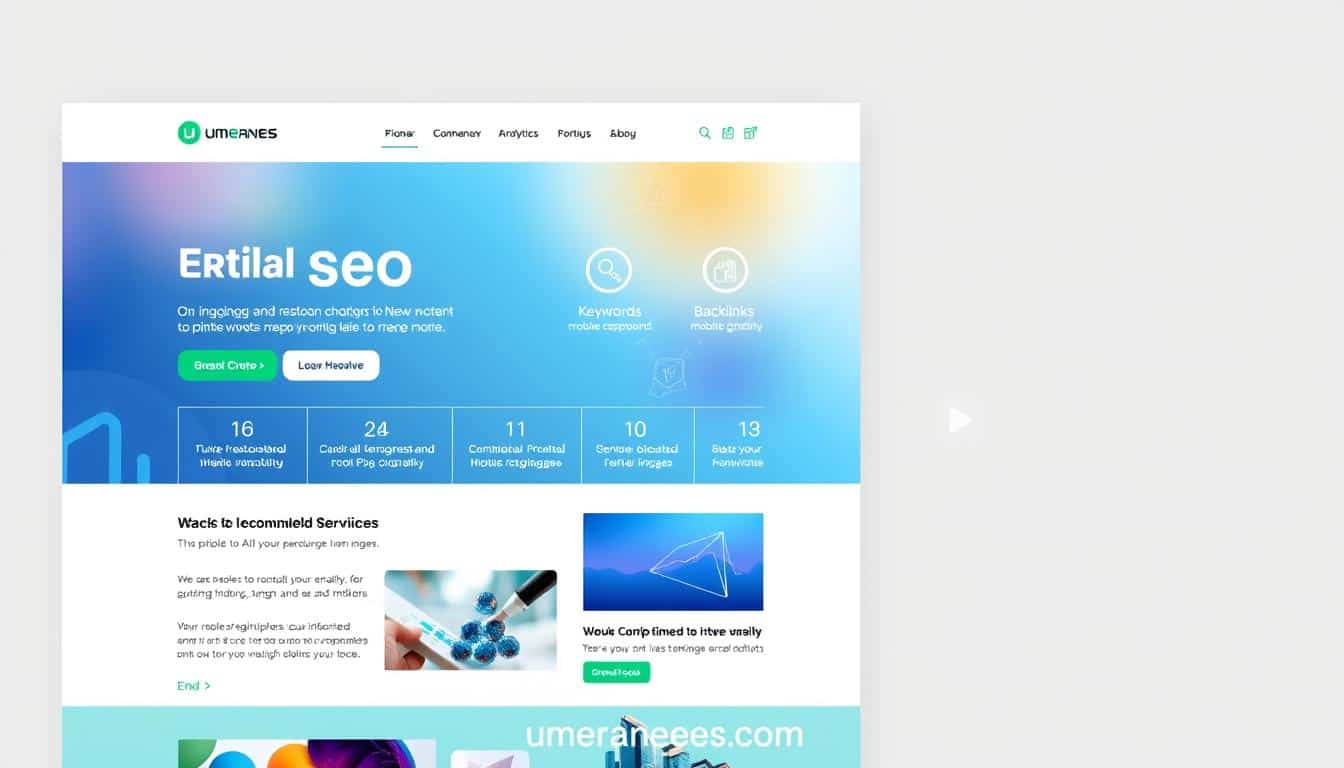Meta Description Length
The length of meta description is an important factor in search engine optimization (SEO) and how well your web page ranks in search results is also connected with meta description length. We’ll go over to cover What is meta description length? How It Impacts SEO,the significance of meta descriptions, how long they should be, and how they affect the visibility of your website. Having a great understanding of these points can improve your digital marketing efforts highly , regardless of experience level.
What Is Meta Description?
A meta description is a short overview of the content of a webpage. It is a brief synopsis of the page’s content that shows up under the page title on search engine results pages (SERPs). A strong meta description can affect user engagement and click-through rates (CTR), even though it isn’t a direct ranking criteria.

What is Meta Description Length in SEO?
The meta description length has an essential role to make sure that the description is fully visible in the search engine result. Mostly metal description should be in between 150 to 160 characters.This is an ideal length that makes sure the full description appears in the search results without being cut or removed.
It also helped to provide users a complete view of what they are expecting from the page.

Why length Matters of Meta Description?
The length of meta description has a great impact on the effectiveness. If your description is too short then it may not be enough to provide a good amount of information to the user who clicks.If the description is too long then search engines may truncate it and it may lead to a loss of your important information. So it is very important to optimize the right length of your description. It also have some following benefits ;
Increases Click-Through Rates (CTR): Search engine results pages (SERPs) can receive more clicks from descriptions that are compelling.
Improves User Experience: A concise and understandable explanation makes it easier for visitors to grasp the information on your website.
Enhances SEO Efforts: By promoting user interaction, meta descriptions enhance the overall SEO strategy even though they don’t directly affect ranking.

How to Check the Number of Meta Descriptions in a URL
It is very essential to check the number of meta descriptions in a URL because it helps you to make sure that your meta descriptions are properly implemented.
You can use tools like Google Search console and third party meta description checkers. These online tools and plugins can assist you in checking the number of meta descriptions on your site.
Tools for Optimizing Meta Descriptions
Meta Description Checker: To assess and improve your meta descriptions, use programs like Yoast SEO or SEMrush.
SEO Meta in 1 Click: This tool streamlines the optimization process by allowing you to examine and change meta descriptions right from the admin panel of your website.
Meta Data Limits and Web Metadata
.It’s significant to understand meta data constraints for efficient SEO. The maximum character count that can be used for meta descriptions and other metadata elements, including meta titles and meta keywords, is indicated by these limits.
1. Meta Data Limits
Metadata limits ensure that meta descriptions are easily visible in search engine results, and they convey the message without any truncation.
Long descriptions may be cut off or removed, so try to use short descriptions that are according to the ideal meta description length
Recommended Limits:
- Meta Description: 150 to 160 characters.
- Meta Title: 50 to 60 characters.
2. Web MetaData Character Limits
Character limits for web metadata are applicable to more metadata items than just meta descriptions. These restrictions aid in making sure that all metadata is appropriately shown in search results and stays within search engines’ display limitations.
Example: Remaining under the 50–60 character restriction for a meta title helps guarantee that the complete title is seen. A meta title is the clickable headline that shows in search results.
How Impactful are Meta Titles on Google?
In close relation to meta descriptions, meta titles are another essential component of SEO. They are a major factor in drawing visitors to your page and work as the headline that users can click on in search engine results.
1. SEO relevance
Meta titles have not impacted directly on certain rankings, but they are very important for CR optimization. If you are using relevant keywords in your meta title it helps to improve your visibility in the search engine.
For example : “Top Digital Marketing Strategies for 2024 | Expert Tips & Tricks” is a catchy meta title for a website on digital marketing strategies since it contains pertinent keywords and a distinct value proposition.
2. User Engagement
Engaging and clear meta titles attract the users to click your link and hence it attracts more traffic and improves the Ctr of your website. Attracting readers who are interested in your issue is facilitated by a well-written title that accurately describes the content of your website.
An example of a meta title for a blog post regarding home improvement advice would be “10 Easy Home Improvement Tips to Boost Your Property Value,” which would draw in readers who are searching for attainable guidance.

How to Get Meta Ai to Summarize Your Posts
In the fast-paced digital world of today, content summarization is essential. Making brief and pertinent summaries of your postings with meta AI is one creative method to accomplish this. Here’s how to use AI technologies for this kind of work:
1. Pick an AI Tool: Opt for a powerful AI tool with a focus on text summarization. Popular options include Scribe and OpenAI’s GPT. These technologies efficiently comprehend and summarise your text using sophisticated algorithms.
2. Enter Your Content: Give the AI tool access to your post’s whole text. Since AI functions best with structured input, make sure the content is clear and well-organized.
3. Generate and Examine: Complete the summarizing procedure and go over the results. Make sure the synopsis appropriately captures the essential points of your piece and is engaging enough to draw readers in.
4. Edit for SEO: If necessary, add pertinent keywords to the synopsis. This enhances the summary’s SEO effectiveness in addition to making it more captivating.
5. Put the Summary into Practice: For other content summaries requirements, use the AI-generated summary as your meta description. Maintain the summary’s relevance and efficacy by updating and improving it frequently.
Privacy Policy Meta Description
Transparency and trust are reliant on crafting a convincing meta description for the privacy policy. This is how to write a meta description for your privacy policy page that works:
Be Brief and Clear: Provide a succinct, unambiguous statement that encapsulates the goal of your privacy policy. To make sure your description shows up correctly in search results, try to keep it between 150 and 160 characters long.
Emphasize Important Points: Pay particular attention to your privacy policy’s core tenets, such as the gathering, handling, and security of user data. To highlight important issues, use phrases like “data protection” and “user privacy.”
Assure Users: Make sure the description exudes confidence and security. Users ought to have faith that their private data is managed appropriately.
Include Relevant Keywords: In your meta description, include terms like “privacy policy,” “data protection,” and “user information.” Users will reach your policy page more easily as a result of this improved SEO.

Review and Update Frequently: To reflect any modifications to your privacy policy or to increase the efficacy of your meta description, review and update it frequently.
Clicking Link in Google Search Doesn’t Open
Users may occasionally run into problems if a link clicked in a Google search fails to launch the page. There could be a number of causes for this, such as malfunctioning links, server problems, or issues implementing the meta description. Ensuring a pleasant user experience requires regular monitoring and resolution of these issues.
Typical Problems with Meta Descriptions
Too Long or Too Short: Too long or too short description could cause it to be shortened in search results, which would lessen its impact.
Absence of Relevance: Meta descriptions ought to fairly represent the page’s content. A bad user experience may result from descriptions that are inaccurate or unnecessary.
Keyword Stuffing: While relevant keywords are important, stuffing your meta description with too many of them can be detrimental.
Conclusion
The length of your meta description affects how much of it appears in search results. Generally speaking, a meta description should be 150–160 characters long. You can make sure that your meta descriptions are optimized for length and effectiveness by using tools like SEO Meta in 1 Click and meta description checker. Web metadata character limits are crucial for optimizing your website’s search engine results.
FAQS
Q1: How long is a meta description?
A: The recommended length for a meta description is 150–160 characters. This length guarantees that the description appears in search engine results in its entirety and gives room for an effective synopsis of the page’s content.
Q2: Is the meta description over 160 characters?
A: In search results, a meta description that is longer than 160 characters might be shortened. This implies that a portion of the description might be omitted, which could reduce its efficacy or leave out crucial information.
Q3: What is the length of metadata?
A: Depending on the kind, metadata has different lengths. For instance, meta descriptions ought to be no more than 150–160 characters, and meta titles ought to be no more than 50–60 characters. Following these guidelines guarantees accurate metadata display in search results.
Q4: What is the best length for a meta title?
A: A meta title should be between 50 and 60 characters long. This range makes it possible for the title to properly convey the primary subject of the page to both visitors and search engines and to be completely displayed in search results.
Q5: What is a basic meta description?
A: A simple meta description, which usually consists of 150–160 characters, is a succinct overview of the content of a webpage. It tries to give a concise and interesting summary of the page to entice users to click through rate and appears beneath the page title in search engine results.







